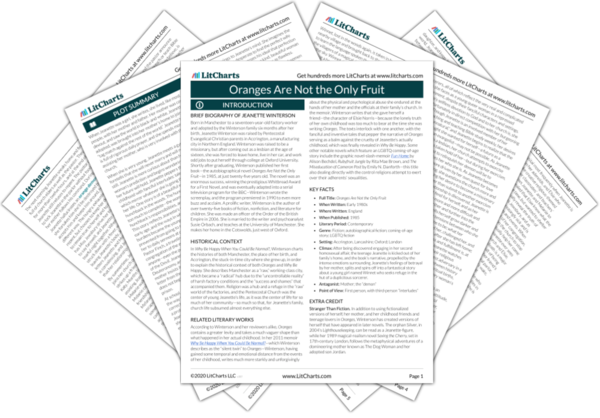As Perceval admits to himself that he left Arthur and Camelot only because of self-interest and ambition, he feels himself start to crumble. His dream in which the “thread” of spider’s silk connecting him to his web ties in with the Winnet tale, as the “thread” that connected Winnet to her father—and by proxy Jeanette to her mother—is at last severed. (It also perhaps references an image from Jonathon Edwards’ famous fire-and-brimstone sermon,
Sinners in the Hands of an Angry God.) Due to their severance of their pasts, Perceval and Jeanette are both at last free.
